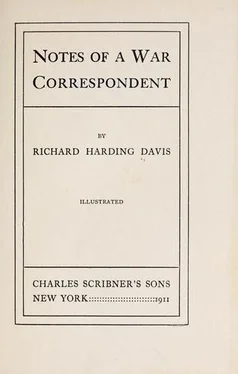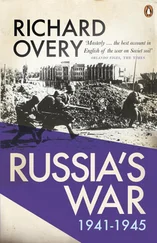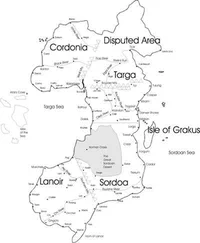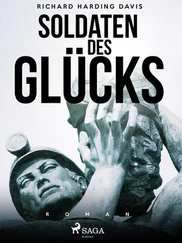Richard Davis - Notes of a War Correspondent
Здесь есть возможность читать онлайн «Richard Davis - Notes of a War Correspondent» весь текст электронной книги совершенно бесплатно (целиком полную версию без сокращений). В некоторых случаях можно слушать аудио, скачать через торрент в формате fb2 и присутствует краткое содержание. Город: New York, Год выпуска: 1911, Издательство: Charles Scribner’s Sons, Жанр: Публицистика, prose_military, на английском языке. Описание произведения, (предисловие) а так же отзывы посетителей доступны на портале библиотеки ЛибКат.
- Название:Notes of a War Correspondent
- Автор:
- Издательство:Charles Scribner’s Sons
- Жанр:
- Год:1911
- Город:New York
- ISBN:нет данных
- Рейтинг книги:5 / 5. Голосов: 1
-
Избранное:Добавить в избранное
- Отзывы:
-
Ваша оценка:
- 100
- 1
- 2
- 3
- 4
- 5
Notes of a War Correspondent: краткое содержание, описание и аннотация
Предлагаем к чтению аннотацию, описание, краткое содержание или предисловие (зависит от того, что написал сам автор книги «Notes of a War Correspondent»). Если вы не нашли необходимую информацию о книге — напишите в комментариях, мы постараемся отыскать её.
Summary by Neeru Iyer
Notes of a War Correspondent — читать онлайн бесплатно полную книгу (весь текст) целиком
Ниже представлен текст книги, разбитый по страницам. Система сохранения места последней прочитанной страницы, позволяет с удобством читать онлайн бесплатно книгу «Notes of a War Correspondent», без необходимости каждый раз заново искать на чём Вы остановились. Поставьте закладку, и сможете в любой момент перейти на страницу, на которой закончили чтение.
Интервал:
Закладка:
The Sand River, which runs about forty miles south of Kroonstad, was the last place in the Free State at which the burghers could hope to make a stand, and at the bridge where the railroad spans the river, and at a drift ten miles lower down, the Boers and Free Staters had collected to the number of four thousand. Lord Roberts and his advancing column, which was known to contain thirty-five thousand men, were a few miles distant from the opposite bank of the Sand River. There was an equal chance that the English would attempt to cross at the drift or at the bridge. We thought they would cross at the drift, and stopped for the night at Ventersburg, a town ten miles from the river.
Ventersburg, in comparison with Kroonstad, where we had left them rounding up stray burghers and hurrying them to the firing-line, and burning official documents in the streets, was calm.
Ventersburg was not destroying incriminating documents nor driving weary burghers from its solitary street. It was making them welcome at Jones’s Hotel. The sun had sunk an angry crimson, the sure sign of a bloody battle on the morrow, and a full moon had turned the dusty street and the veldt into which it disappeared into a field of snow.
The American scouts had halted at Jones’s Hotel, and the American proprietor was giving them drinks free. Their cowboy spurs jingled on the floor of the bar-room, on the boards of the verandas, on the stone floor of the kitchen, and in the billiard-room, where they were playing pool as joyously as though the English were not ten miles away. Grave, awkward burghers rode up, each in a cloud of dust, and leaving his pony to wander in the street and his rifle in a corner, shook hands with every one solemnly, and asked for coffee. Italians of Garibaldi’s red-shirted army, Swedes and Danes in semi-uniform, Frenchman in high boots and great sombreros, Germans with the sabre cuts on their cheeks that had been given them at the university, and Russian officers smoking tiny cigarettes crowded the little dining-room, and by the light of a smoky lamp talked in many tongues of Spion Kop, Sannahspost, Fourteen Streams, and the battle on the morrow.
They were sun-tanned, dusty, stained, and many of them with wounds in bandages. They came from every capital of Europe, and as each took his turn around the crowded table, they drank to the health of every nation, save one. When they had eaten they picked up the pony’s bridle from the dust and melted into the moonlight with a wave of the hand and a “good luck to you.” There were no bugles to sound “boots and saddles” for them, no sergeants to keep them in hand, no officers to pay for their rations and issue orders.
Each was his own officer, his conscience was his bugle-call, he gave himself orders. They were all equal, all friends; the cowboy and the Russian Prince, the French socialist from La Villette or Montmartre, with a red sash around his velveteen breeches, and the little French nobleman from the Cercle Royal who had never before felt the sun, except when he had played lawn tennis on the Isle de Puteaux. Each had his bandolier and rifle; each was minding his own business, which was the business of all—to try and save the independence of a free people.
The presence of these foreigners, with rifle in hand, showed the sentiment and sympathies of the countries from which they came. These men were Europe’s real ambassadors to the Republic of the Transvaal. The hundreds of thousands of their countrymen who had remained at home held toward the Boer the same feelings, but they were not so strongly moved; not so strongly as to feel that they must go abroad to fight.
These foreigners were not the exception in opinion, they were only exceptionally adventurous, exceptionally liberty-loving. They were not soldiers of fortune, for the soldier of fortune fights for gain. These men receive no pay, no emolument, no reward. They were the few who dared do what the majority of their countrymen in Europe thought.
At Jones’s Hotel that night, at Ventersburg, it was as though a jury composed of men from all of Europe and the United States had gathered in judgment on the British nation.
Outside in the moonlight in the dusty road two bearded burghers had halted me to ask the way to the house of the commandant. Between them on a Boer pony sat a man, erect, slim-waisted, with well-set shoulders and chin in air, one hand holding the reins high, the other with knuckles down resting on his hip. The Boer pony he rode, nor the moonlight, nor the veldt behind him, could disguise his seat and pose. It was as though I had been suddenly thrown back into London and was passing the cuirassed, gauntleted guardsman, motionless on his black charger in the sentry gate in Whitehall. Only now, instead of a steel breastplate, he shivered through his thin khaki, and instead of the high boots, his legs were wrapped in twisted putties.
“When did they take you?” I asked.
“Early this morning. I was out scouting,” he said. He spoke in a voice so well trained and modulated that I tried to see his shoulder-straps.
“Oh, you are an officer?” I said.
“No, sir, a trooper. First Life Guards.”
But in the moonlight I could see him smile, whether at my mistake or because it was not a mistake I could not guess. There are many gentlemen rankers in this war.
He made a lonely figure in the night, his helmet marking him as conspicuously as a man wearing a high hat in a church. From the billiard-room, where the American scouts were playing pool, came the click of the ivory and loud, light-hearted laughter; from the veranda the sputtering of many strange tongues and the deep, lazy voices of the Boers. There were Boers to the left of him, Boers to the right of him, pulling at their long, drooping pipes and sending up big rings of white smoke in the white moonlight.
He dismounted, and stood watching the crowd about him under half-lowered eyelids, but as unmoved as though he saw no one. He threw his arm over the pony’s neck and pulled its head down against his chest and began talking to it.
It was as though he wished to emphasize his loneliness.
“You are not tired, are you? No, you’re not,” he said. His voice was as kindly as though he were speaking to a child.
“Oh, but you can’t be tired. What?” he whispered. “A little hungry, perhaps. Yes?” He seemed to draw much comfort from his friend the pony, and the pony rubbed his head against the Englishman’s shoulder.
“The commandant says he will question you in the morning. You will come with us to the jail now,” his captor directed. “You will find three of your people there to talk to. I will go bring a blanket for you, it is getting cold.” And they rode off together into the night.
Two days later he would have heard through the windows of Jones’s Hotel the billiard balls still clicking joyously, but the men who held the cues then would have worn helmets like his own.
The original Jones, the proprietor of Jones’s Hotel, had fled. The man who succeeded him was also a refugee, and the present manager was an American from Cincinnati. He had never before kept a hotel, but he confided to me that it was not a bad business, as he found that on each drink sold he made a profit of a hundred per cent. The proprietress was a lady from Brooklyn, her husband, another American, was a prisoner with Cronje at St. Helena. She was in considerable doubt as to whether she ought to run before the British arrived, or wait and chance being made a prisoner. She said she would prefer to escape, but what with standing on her feet all day in the kitchen preparing meals for hungry burghers and foreign volunteers, she was too tired to get away.
War close at hand consists so largely of commonplaces and trivial details that I hope I may be pardoned for recording the anxieties and cares of this lady from Brooklyn. Her point of view so admirably illustrates one side of war. It is only when you are ten years away from it, or ten thousand miles away from it, that you forget the dull places, and only the moments loom up which are terrible, picturesque, and momentous. We have read, in “Vanity Fair,” of the terror and the mad haste to escape of the people of Brussels on the eve of Waterloo. That is the obvious and dramatic side.
Читать дальшеИнтервал:
Закладка:
Похожие книги на «Notes of a War Correspondent»
Представляем Вашему вниманию похожие книги на «Notes of a War Correspondent» списком для выбора. Мы отобрали схожую по названию и смыслу литературу в надежде предоставить читателям больше вариантов отыскать новые, интересные, ещё непрочитанные произведения.
Обсуждение, отзывы о книге «Notes of a War Correspondent» и просто собственные мнения читателей. Оставьте ваши комментарии, напишите, что Вы думаете о произведении, его смысле или главных героях. Укажите что конкретно понравилось, а что нет, и почему Вы так считаете.












